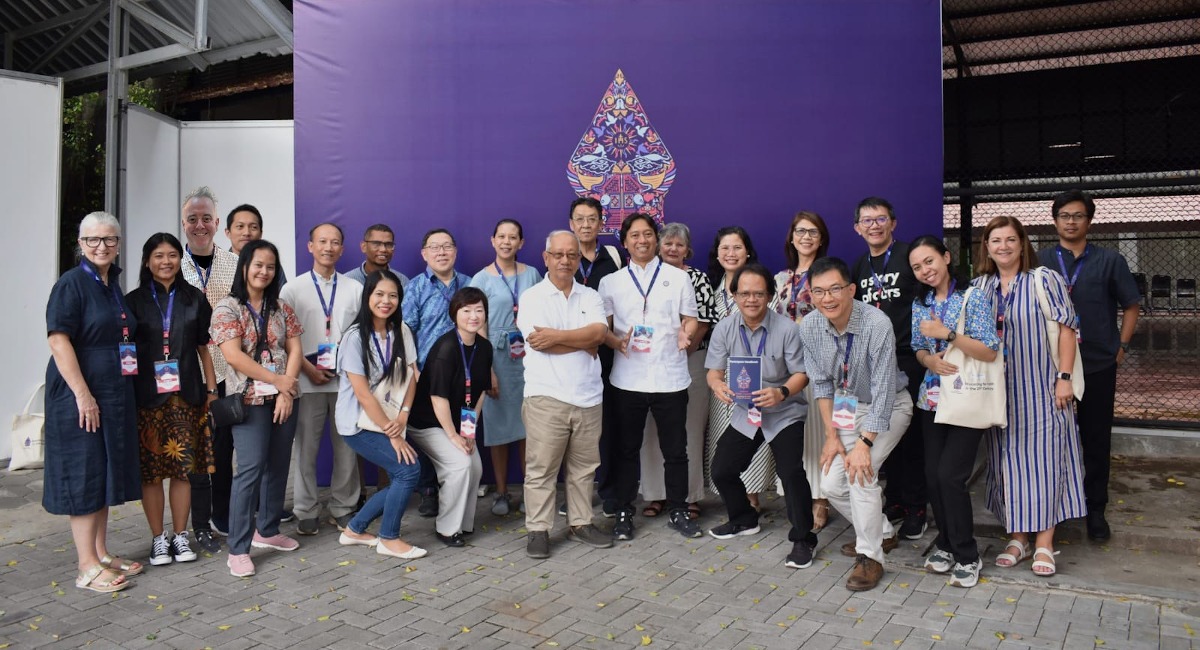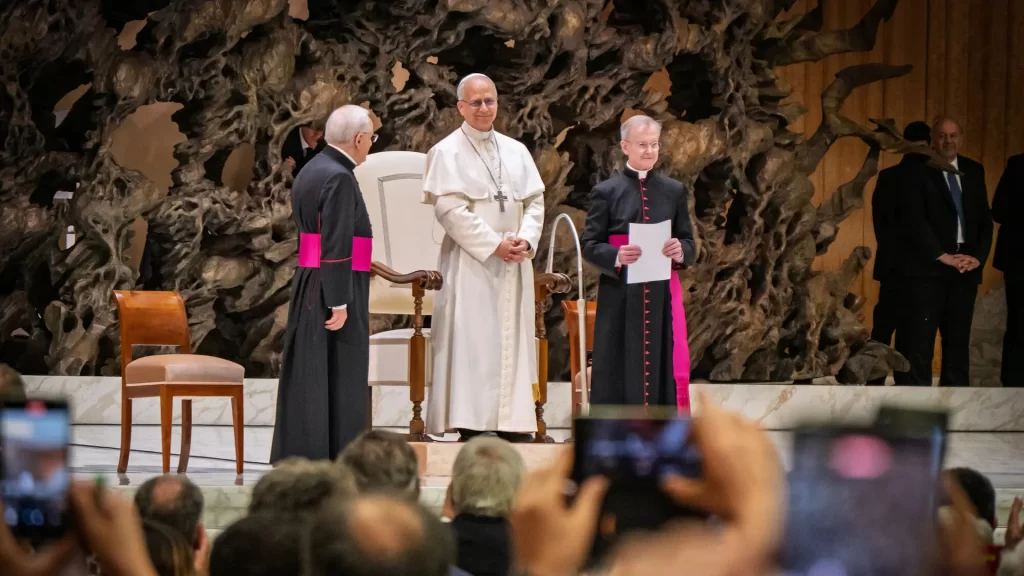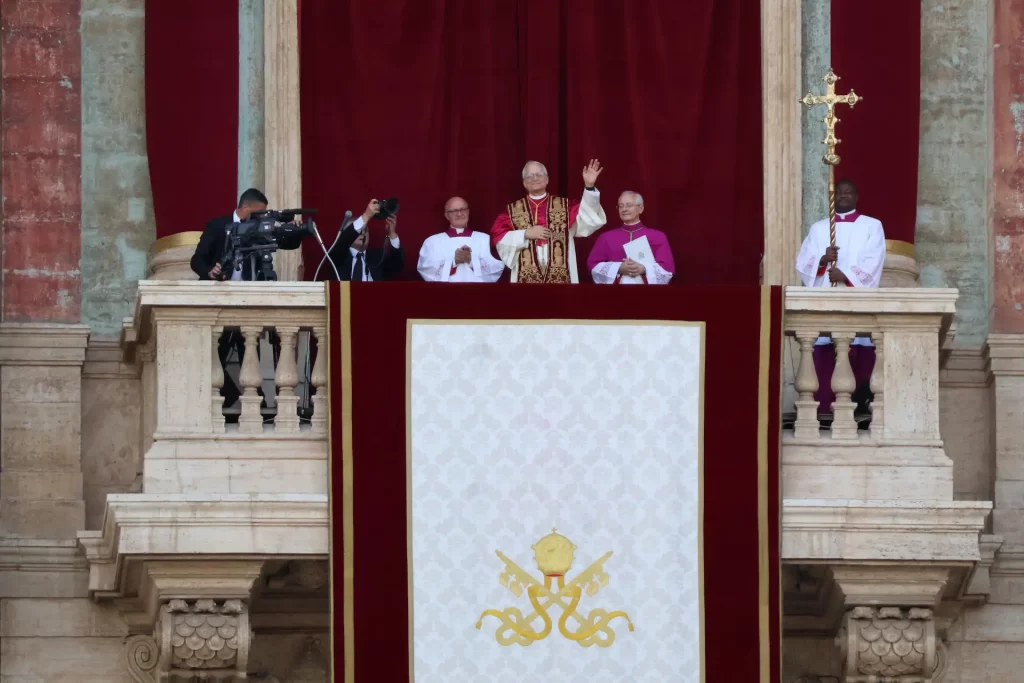
Delegates from the Jesuit Conference of Asia Pacific
For a week, over a hundred representatives of primary and secondary Jesuit schools and federations from Asia Pacific, Europe, the United States, South Asia, South America, and Africa and Madagascar convened at De Britto Senior High School in Yogyakarta, Indonesia, for the II JESEDU-Jogja 2024 Seminar. This global gathering aimed to address key aspects of Jesuit education and discern the evolving role of Jesuit schools in contemporary society.
In his virtual address, Fr General Arturo Sosa SJ emphasised the increasing diversity within Jesuit schools, noting that many operate in non-Catholic or even non-Christian contexts. He asserted that this diversity enhances the relevance of Jesuit education as it bears witness to the Gospel’s universal message. Fr Sosa underscored the importance of interreligious dialogue, framing it as an integral aspect of the Church’s mission. He encouraged Jesuit schools to act as bridges in a diverse world, aligning with Pope Francis’ vision of a unified human family.
Father General expressed hope that the seminar would provide Jesuit schools with guidelines to deepen their faith formation amid multi-religious contexts. He stressed the importance of Ignatian spirituality in navigating these challenges, advocating for a strengthened Jesuit identity that embraces reconciliation and justice.
The Superior General’s address touched on the key strands of the seminar, namely, Sharing God through Ignatian Spirituality, Educating for Interreligious Dialogue, Forming a Resilient Faith, and Educating for Faith as Catholic Schools in the Ignatian Tradition.
Jesuit schools are seen as platforms for evangelization through Ignatian spirituality. The seminar emphasised forming both students and staff in Ignatian practices, including the Examen and personal discernment. Jesuit education should create transformative experiences that foster deep faith and allow students to express their full humanity, positioning Jesuit schools as “places of encounter” where God can be found in all things.
The seminar also addressed the need for Jesuit schools to operate in multicultural and multi-religious contexts. Effective interreligious dialogue requires a strong sense of Catholic identity while embracing other religious experiences. This dialogue broadens student perspectives, enhances critical thinking, and promotes social cohesion.
Jesuit schools must also understand and engage with secularism while nurturing a resilient faith. This involves providing students with a transcendent faith experience rooted in tradition and Ignatian spirituality. The seminar highlighted the need for teachers and pastoral guides to be well-formed in these areas to support students in their spiritual journey.
Finally, Jesuit schools are tasked with proclaiming the Gospel amid contemporary challenges. The seminar encouraged schools to adapt Ignatian evangelization methods to their context, facilitating encounters with Jesus Christ through prayer, service, and community.
Throughout the seminar, participants engaged in personal reflection and communal prayer, including the Examen, to process each day’s discussions and insights. They engaged in group discussions and spiritual conversations and listened to synthesis by experts, allowing them to deepen their reflection on the seminar’s themes. Their spiritual conversations revolved around how they could integrate Ignatian spirituality into their educational practices and personal faith formation.
The gathering concluded with the formulation of a vision statement for Jesuit schools. The statement emphasises the role of Jesuit schools in intentionally educating in the Catholic tradition by guiding students to discover and deepen their faith through encounters with God and Jesus Christ. It underscores the importance of Ignatian spirituality, dialogue with other religions and secular views, and contextual adaptation to local cultures.
II JESEDU-Jogja 2024, which was held from 24 to 28 June, was part of a global cycle of meetings organised by the International Commission on the Apostolate of Jesuit Education (ICAJE). It was participated in by the Jesuit European Committee for Primary and Secondary Education, the Jesuit Schools Network, the Jesuit Educational Association of South Asia, the Jesuit Association of Secondary and Basic Education in Africa and Madagascar, the Federation of Latin American Jesuit Schools, Fe y Alegria, Educate Magis, and this year’s host, the Jesuit Conference of Asia Pacific.
Watch highlights of the event:






